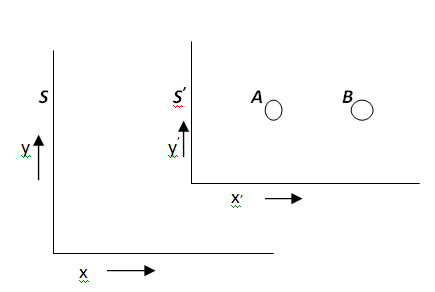Consider the inelastic collision between two bodies.
This question follows on from this: Is the coefficient of restitution frame independent and energy conservation?.
One of the answers to this question said that $\Delta E$ had to be in the CofM frame. But is $\Delta E$ not the same in every frame? (I know it is not the same for simply the change in the kinetic energy of one body, but for a collision like this it seems like $\Delta E$ i.e. the energy lost to the soundings should be invariant).
Here is my reasoning consider the frame $S'$ moving at speed $v$ with respect to $S$ (ignoring relativistic effects), then the change in kinetic energy in $S'$ is given by: $$\Delta E'=\frac{1}{2}m_1 u^{'2}_1+\frac{1}{2}m_2 u^{'2}_2-\frac{1}{2}m_1 v^{'2}_1-\frac{1}{2}m_2 v^{'2}_2$$ $$=\frac{1}{2}m_1 (u_1-v)^2+\frac{1}{2}m_2 (u_2-v)^2-\frac{1}{2}m_1 (v_1-v)^2-\frac{1}{2}m_2 (v_2-v)^2$$ $$=(\frac{1}{2}m_1 u^{2}_1+\frac{1}{2}m_2 u^{2}_2-\frac{1}{2}m_1 v^{2}_1-\frac{1}{2}m_2 v^{2}_2)+2v(m_1v_1+m_1v_2-m_1u_1-m_2u_2)+0$$ but due to conservation of momentum the thing in the second brackets is 0 so we are left with: $$\Delta E'=\Delta E$$ Is this correct as it does not feel right? If so can you please explain why it is the case intuitively, thanks.

